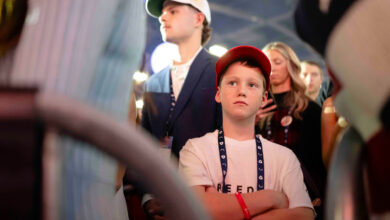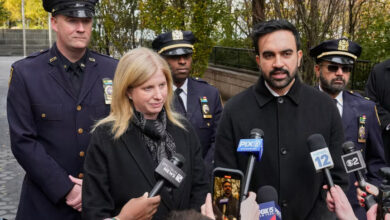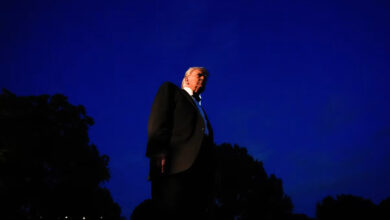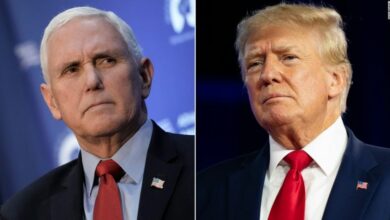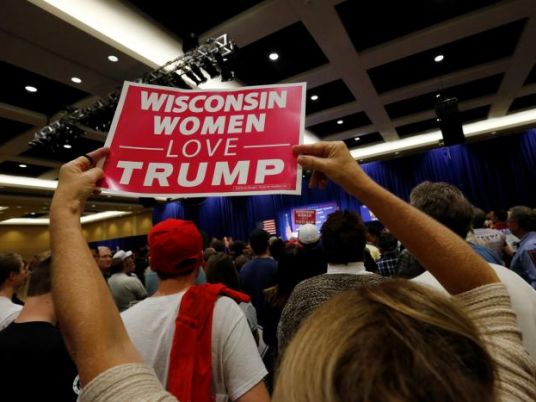
Republican presidential nominee Donald Trump on Monday cited studies he said showed rampant voter fraud, saying the Nov. 8 election was "rigged" against him even as Republican lawyers called his allegations unfounded.
Trump, a New York businessman making his first run for public office, has sought to raise fears of a flawed election as he has fallen in opinion polls against Democrat Hillary Clinton.
"They even want to try to rig the election at the polling place," Trump told a rally in Green Bay, Wisconsin. "So many cities are corrupt and voter fraud is very, very common."
Trump cited Pew Trusts research from 2012 that called for updates to the voter registration system because about 24 million registrations were inaccurate.
He also referred to a 2014 article by two political scientists in the Washington Post that said non-citizens who voted could have accounted for Democratic victories in a few close elections in 2008, although the authors acknowledged the sample size of their study was small.
Numerous studies have shown that voter fraud in U.S. elections is very rare.
Republican campaign lawyer Chris Ashby said Trump's charges could foment unrest and were “unfounded” and “dangerous.”
"When you say an election is rigged, you’re telling voters, your supporters, their votes do not matter,” Ashby said in an interview. "I think some of Donald Trump’s comments could cause unrest at the polls."
Some Republicans have urged Trump to drop the assertions. Early voting and voting by mail have already begun in many states.
Mark Braden, partner at Baker and Hostetler and former chief counsel for the Republican National Committee, said that any sort of election rigging at the national level “just is impossible,” citing the various systems in place that would make such an endeavor complicated and unfeasible.
“Our system is principally a system based upon each side watching the other side,” Braden said in an interview. “Our system is dependent on local volunteer participation. Our system has worked very well because we have people who get involved in the process and perform these functions.”
Trump also pounced on the release on Monday of Federal Bureau of Investigation documents that he alleged showed "felony corruption."
The documents cited an FBI official as saying a senior State Department official sought to pressure the bureau in 2015 to drop its insistence that an email from Clinton's private server contained classified information.
Clinton's decision to use a private server while secretary of state from 2009 to 2013 has drawn criticism that she was careless with national security.
"This is worse than Watergate, what's going on with this," said Trump.
He also proposed a package of ethics reforms, saying that if elected he would ban his administration officials from lobbying government for five years after leaving government.
'Not going to be rigged'
Clinton campaign manager Robby Mook said Trump's assault on the voting system was an act of desperation.
"He knows he's losing and is trying to blame that on the system. This is what losers do," Mook told reporters.
The RealClearPolitics average of national opinion polls shows Clinton currently leading Trump by 7.1 percentage points, at 46 percent to 38.9 percent.
The country's top elected Republican, House of Representatives Speaker Paul Ryan, tried to counter Trump's message about election fraud. Spokeswoman AshLee Strong said Ryan "is fully confident the states will carry out this election with integrity."
In the traditionally hard-fought state of Ohio, the top elections official, a Republican, said concerns about widespread voter fraud were simply not justified.
"I can reassure Donald Trump: I am in charge of elections in Ohio and they're not going to be rigged, I'll make sure of that," Ohio Secretary of State Jon Husted told CNN.
In a report titled "The Truth About Voter Fraud," the Brennan Center for Justice at New York University School of Law cited voter fraud incident rates between 0.00004 percent and 0.0009 percent.
An August study by the Washington Post found 31 credible cases of impersonation fraud out of more than 1 billion votes cast in elections from 2000 to 2014. Arizona State University studies in 2012 and 2016 found similarly low rates.
A number of Republican-led states, citing the need to prevent voter fraud, have passed laws with stricter ID requirements. But several have been struck down by courts that ruled they were designed to hinder minority voting.
Melania Trump speaks out
Trump's campaign has been shaken since the release 10 days ago of a 2005 tape showing him lewdly bragging about kissing and touching women without their permission. A series of women have since come forward with allegations about such behavior on his part, but he has denied those accusations.
"They want to put nice sexy headlines up even though nothing happened," Trump said, blaming the media for trying to "poison the minds of the voters."
On Monday, the allegations were in the headlines again after Trump's wife, Melania Trump, spoke publicly for the first time about the "Access Hollywood" tape.
A former model who has mainly stayed off the campaign trail, Trump told CNN she was surprised by her husband's language and said she thought he had been "egged on" to "say dirty and bad stuff," calling it "boy talk."
Melania Trump told CNN that the allegations of unwanted touching from women were "all organized from the opposition" and said media did not "check the background of these women."
In a separate interview with Fox News Channel, she said she had forgiven her husband for the comments in the tape.
"Those words, they were offensive to me and they were inappropriate. And he apologized to me," Melania Trump said in an excerpt released by Fox News Channel.
"I accept his apology. And we are moving on," she said.

